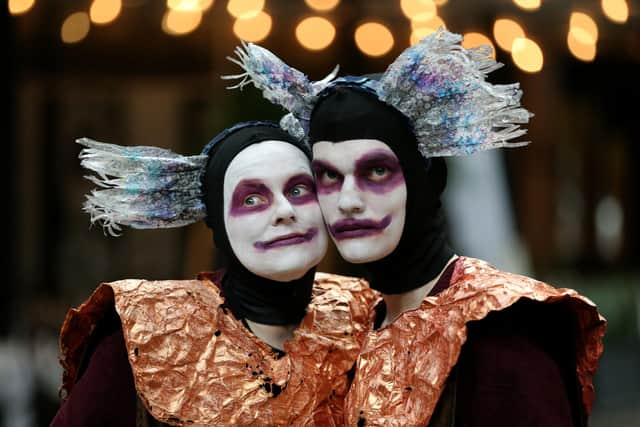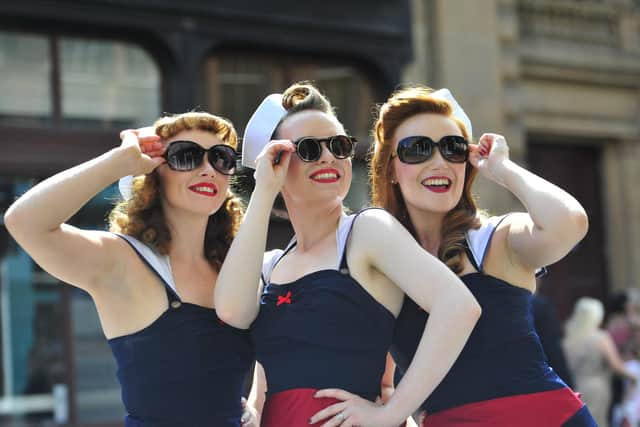Merchant City Festival gets green light to return in Glasgow this summer
Four days of free events, pop-up shows and performances will be staged in and around the Candleriggs area.
Acts from across the UK are expected to travel to Glasgow for the city council-backed festival, which will encompass theatre, circus, cabaret, music and dance.
Advertisement
Hide AdAdvertisement
Hide AdDuring the festival, which will be launched with a Baroque Venetian-themed carnival on Thursday 8 July, cafes, bars and restaurants will be encouraged to apply to extend their outdoor seating.
Local businesses will also be offered a £500 grant to help them put on their own entertainment indoors or outdoors during the festival, which was called off last summer due to the pandemic.
Glasgow's hospitality sector was dealt a major blow on Friday when the Scottish Government announced that the planned easing of restrictions across the country would not apply to the city due to a surge of Covid cases.
Organisers have said the Merchant City Festival, which will reveal its full line-up over the next few weeks, will “look and feel different” from previous years, after ruling out bringing in any additional market or food stalls to the area, on public health advice.
Although all events and performances will be free of charge, some will be ticketed to help ensure the festival complies with Covid rules and restrictions.


The festival, which is organised by the Glasgow Life trust on behalf of the city council, also pledged that elements of the programme will explore the Merchant City’s links to the transatlantic slave trade and “British colonialism.”
Councillor David McDonald, who is also chair of Glasgow Life, said: “We can’t wait to welcome the return of the Merchant City Festival this summer.
Advertisement
Hide AdAdvertisement
Hide Ad"It’s such a warm and welcoming event and with restrictions starting to lift and light appearing at the end
of this difficult year we look forward to sharing the programme of engaging and celebratory events over the coming weeks.


"“The local retailers, restaurant and bars within the Merchant City are an integral part of the festival every year and I do encourage as many as possible to sign up to our ‘Get Involved Fund’ so we can help facilitate them being an even bigger part of what is set to be a feel-good and exciting long weekend of culture and fun.”
Lorenzo Mele, executive producer of the festival, said: “Although the festival offering won’t be the same as previous years, the programme will continue to be centred around a rich cultural experience, with community at its heart.
"The festival will celebrate the best from Scotland and the UK in outdoor performance, covering circus, dance, carnival, music, outdoor theatre and cabaret.
"While it will look and feel different from previous years, it will still surprise and delight as familiar streets and spaces are transformed by performances and excitement.
"The festival will continue to support the local businesses in the Merchant City, working closely with them to present performances and encourage a safe return to the cultural heart of the city.
"We will also continue to explore the difficult history of the area with its roots in the transatlantic slave trade and British colonialism.”
Comments
Want to join the conversation? Please or to comment on this article.